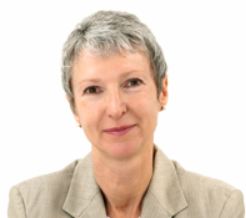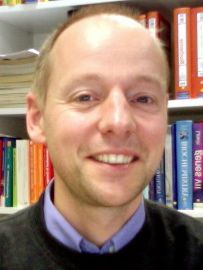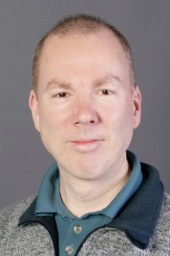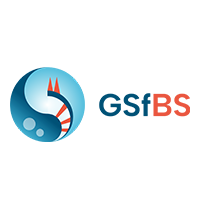Workshops supporting your career
You might have asked yourself....
- How can I create and deliver powerful, well-structured, coherent and interesting talks and deal professionally and self-confidently with challenges in the question and answer session?
- Is my poster well-structured and do I get the message across optimally? What do I do if a big shot approaches my poster?
- I have data to publish, but keep putting off writing that paper because I don’t know where to begin.
- I want to get my own research fellowship but don’t know how to get started.
- I am curious about job opportunities outside academic research and it makes me feel insecure, do I have the right skills?
- Do I know how to test my hypotheses, calculate sample sizes, the difference between p-Value and confidence intervals?
- I have big data and don't know how to best handle, treat and analyze them. I would like to learn the programming language R.
- To convey the scientific message, do I use text, tables or plots?
- I always felt that my PhD project could be managed better and I would like to learn how.
- How can I resolve conflicts and even move things forward?
- How can I communicate more proactively with my peers and supervisors? How can I explain problems and progress with my research project in the best possible way? What can I do to master individual communication challenges? How can I identify and correct weak communication? How can I act and react more assertively?
.........the solution is to get training. We welcome you to participate in the workshops of the GSfBS! Our tailor-made workshop programme provides the necessary tools to develop and enhance the academic and professional skills you need. Our trainers are very experienced and their expertise is focused on meeting the specific demands of scientists involved in biological and life sciences. Dr. Ruth Willmott and Dr. Rick Scavetta are native English speakers and biologists. Dr. Alexander Klassmann is a mathematician who has long term experience in teaching biologists, Dr. Michaela Höhne and Prof. Röbbe Wünschiers are biologists. Sabine Lerch is a communication consultant focusing on the specific communication needs of Life and Natural Scientists.
Important information: Students fulfilling the requirements of the GSfBS Core Programme are preferred for the workshops. Therefore, when you apply for a course, please indicate the date of your most recent TAC meeting. If you are a member of the GSfBS only (no additional membership in specialised programme) and you haven't yet submitted the documents associated with the last TAC meeting, please attach them to your email when applying to register for the workshop.
For workshop requests and registration (except for Good Scientific Conduct) please contact Kathy Joergens kjoergen@uni-koeln.de.
Good Scientific Conduct (compulsory part of the GSfBS core programme)
| Workshop/Lecture/Seminar Series | Who | When in your doctorate? | Dates |
Good Scientific Conduct by the GSfBS, Biases in Science by Prof. Niels Gehring Individual topics by independent group leaders Data management, University regulations, the analogous notebook Authorships and contributorships, forms of plagiarism Dr. Kateria Vlantis | Doctoral researchers | as early as possible | Preparatory work is needed. |
| Good Scientific Practice | PD Dr. Gabriella Lundkvist gives a workshop at the MPIs |
Presenting and Writing, Career Management

| Workshop | Who? | Phase of the doctorate? | Dates |
| Trainer: Dr. Ruth Willmott | |||
| Career Orientation | Doctoral researchers | at the beginning of your doctorate | 17.11.2025 |
| Showcasing your research at international scientific meetings Abstracts, Posters and Presentations | Doctoral researchers | Any time before you want/need to write an abstract for a conference, present a poster and/or give a (short) presentation on a conference. If you had a poster or presentation workshop with Dr. Willmott already, you are not eligible for this workshop. | Introduction 3 days 21.05. - 23.05.2025 follow up 2 days 26.05. - 27.05.2025 |
| Scientific Writing | Doctoral researchers | 1,5 - 2,5 year into the doctorate or when you start drafting an annual report or a publication | the workshop is 3 full days 29.09. - 01.10.2025 |
| Getting Funded (GF) | Doctoral researchers | one year before you start applying for a postdoc If you had the workshop in CMM with Dr. Willmott already,you are not eligible for this workshop. | introduction 1,5 days 12.06.-13.06.2025 follow up 2 x 1 day 16.06. - 17.06.2025 |
| Career Mentoring and Management (CMM) | Doctoral researchers | one year before you start applying for jobs on the wider job market
| introduction 1,5 days 13. - 14.11.2025 follow up 2 x 1 day 18.11. or 19.11.2025 |
Leading, Managing Projects and Conflicts

| Trainer: Sabine Lerch | |||
| Workshop | Who | Which phase of the doctorate? | Dates |
| Skills for project managers | Doctoral candidates and early stage postdocs | Any time but better earlier than later | online workshop 27.01. - 29.01.2025 |
| Conflict management | Doctoral candidates and early stage postdocs | Any time but better earlier than later | workshop in presence 08.07. - 09.07.2025 |
ChIP-Seq analysis: from fastq files to figures
(Also suitable for CUT&Tag, DSBCapture and ATAC-Seq data).
This course has been developed to enable doctoral candidates and postdocs to analyze their own data while being concise and flexible enough to fit their busy schedules. Each module consists of several short videos, each about 10-15 min long, that can be watched whenever there is time. To deepen the understanding, questions and exercises will be provided at the end of many videos. For each module, there is going to be a live Q&A session via zoom where questions can be asked and exercises discussed. The course will start with an introductory meeting in zoom and consists of four modules covering all steps needed to analyse ChIP-Seq data.
| Trainer: Dr. Michaela Höhne-Wiechmann | |||
| Workshop (online) | all meetings via ZOOM / live Q&A sessions | who | dates |
| Introductory Meeting | Introduction to the course content | Docs and Postdocs | 02 Oct 2025 |
| Module 1 - Introduction to Unix | Useful commands, installing programs, using a high-performance clusters | Docs and Postdocs | 30 Oct 2025 |
| Module 2 - From fastq files to count matrix | Quality control, adapter trimming, alignment, peak calling, count matrix generation | Docs and Postdocs | 26 Nov 2025 |
| Module 3 - From count matrix to differentially enriched regions | Introduction to R, differential analysis with two or more conditions | Docs and Postdocs | 07 Jan 2026 |
| Module 4 - Different options for further analyses | Bigwig files and IGV browser, profiles and heatmaps, gene annotation, transcription factor binding sites, copy number aberrations, intervene pairwise | Docs and Postdocs | 02 Feb 2026 |
Bioinformatics

| Trainer: Prof. Dr. Röbbe Wünschiers | |||
| Workshop (in presence) | Who | When | Dates |
Bioinformatics The four-day workshop covers practical training and introduction to:
Practical training includes:
The course is based on the lecturer's textbook, which can be downloaded at https://link.springer.com/book/10.1007/978-3-031-70314-0 | Doctoral researchers and early stage postdocs | any time | 22.-25.09.2025
|
R - workshops

| R-workshops (in presence) 2.0 - 2.5 hours per module | Who | Dates |
| Introduction to R for beginners (4 modules) | advanced MSc, doctoral students, postdocs | 1, 2, 4, 5 Sept 2025 / am |
| Statistical Testing with R (3 modules) | advanced MSc, doctoral students, postdocs | 8, 9, 11 Sept 2025 / am |
| Survival Analysis with R (1 module) | advanced MSc, doctoral students, postdocs | 12 Sept 2025 / am |
| Gene Ontology (1 module) | advanced MSc, doctoral students, postdocs | 12 Sept 2025 / pm |
| R package ggplot (1 module) | advanced MSc, doctoral students, postdocs | 15 Sept 2025 / am |
| Principal Component Analysis with R (1 module) | advanced MSc, doctoral students, postdocs | 15 Sept 2025 / pm |
| R package "DESeq2" (2 modules) | advanced MSc, doctoral students, postdocs | 16 Sept 2025 / am; pm |
Resilience and Stress Management
| Trainer: Dr. Ben Hartwig | ||
| Workshop (in presence) | Who | Date & Venue |
Resilience and Stress Management Course for Scientists In a highly interactive workshop, participants explore
to recognise stress signals early on and manage challenges effectively. Through active engagement with real-world scenarios and personal reflection, scientists develop adaptable methods to
under pressure. | Doctoral researchers at all stages | 20.11.2025 CoMB Building |
Statistics, Programming with R, Analyzing and Visualizing data
| Trainer: Dr. Rick Scavetta (scavetta academy) | |||
| Online Workshops | Who | When during the doctorate? | Dates |
| Stats Literacy | Doctoral researchers | early phase | Live Sessions: 7./14./21./23. Mai 2025 |
| Data Analysis | Doctoral researchers and early stage postdocs | any time | Live Sessions: 2./9./11./16. April 2025 |
| Data Visualisation | Doctoral researchers and early stage postdocs who know how to use the programming language R | any time | expected in 2026 |
